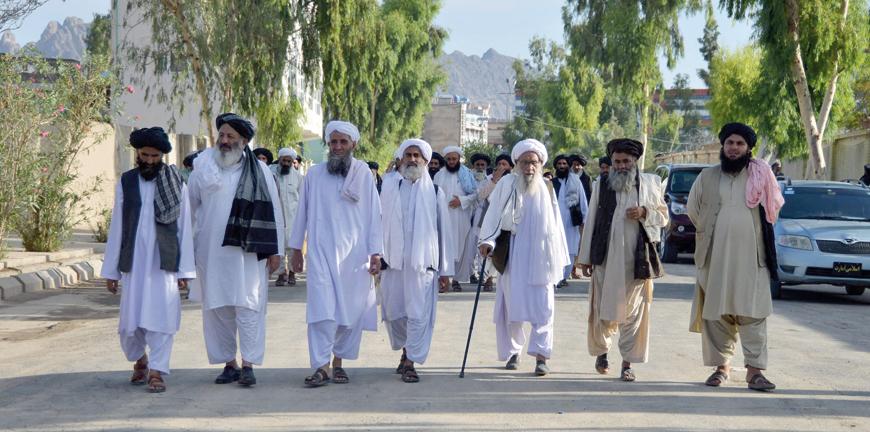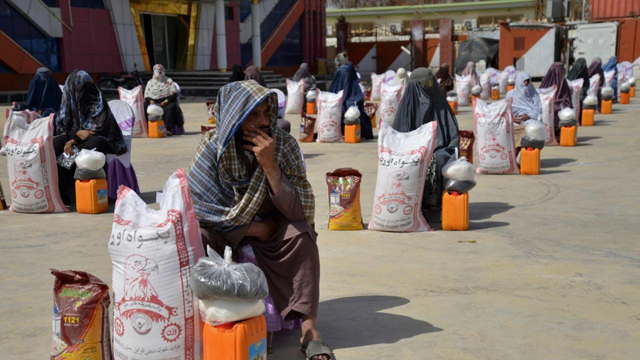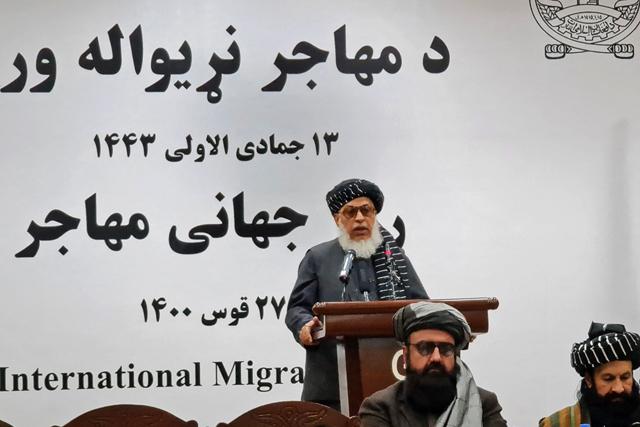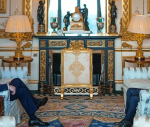You are here
UN to end travel ban exemptions for Taliban officials
By AFP - Aug 21,2022 - Last updated at Aug 21,2022

Taliban religious scholars leave after attending a public meeting on economic welfare at a private salon in Kandahar on Thursday (AFP photo)
UNITED NATIONS, United States — The United Nations is set to end travel ban exemptions for 13 Taliban officials on Friday, pending any deal by Security Council members on a possible extension, diplomats told AFP.
Under a 2011 UN Security Council resolution, 135 Taliban officials are subject to sanctions that include asset freezes and travel bans.
But 13 of them were granted exemptions from the travel ban to allow them to meet officials from other countries abroad.
In June, the 15-member UN Security Council's Afghanistan Sanctions Committee removed two Taliban education ministers from the exemption list over the regime's curtailment of women's rights.
At the same time, they renewed the exemption for the others until August 19, plus a further month if no member objected.
Ireland objected this week, according to diplomatic sources.
China and Russia have called for an extension, while the United States has sought a reduced list of the officials allowed to travel and the destinations they can travel to.
The latest proposal on the table would allow just six officials to travel for diplomatic reasons, diplomatic sources told AFP.
If no member of the Council objects by Monday afternoon, it will come into force for three months.
In the meantime, the exemptions for the 13 officials end at midnight on Friday.
Among the 13 are Deputy Prime Minister Abdul Ghani Baradar and Deputy Minister of Foreign Affairs Sher Mohammad Abbas Stanekzai.
They were instrumental in negotiations with the US government of then-president Donald Trump which led to a deal in 2020 paving the way for America's withdrawal from Afghanistan.
A spokesperson for the Chinese mission at the UN, which currently holds the rotating presidency of the Security Council, this week called the Western position linking the travel ban to human rights “counterproductive”.
The exemptions are “needed as much as ever”, the spokesperson said, adding that if reimposing a travel ban is all other members of the Council want to do, “clearly they have learned no lessons at all”.
Despite their promises to be more flexible after they seized power in August last year, the Taliban have largely reverted to the harsh Islamist rule that characterised their first stint in power from 1996 to 2001.
In particular, they have severely restricted the rights and freedoms of girls and women, calling for them to don burkas, effectively halting girls’ education and systematically removing women from Afghan workplaces.
No country has so far recognised the government.
Related Articles
UNITED NATIONS, United States — The Taliban have extended a ban on women working for NGOs to the United Nations’ mission throughout the coun
KABUL — Afghanistan risks becoming a forgotten crisis unless the Taliban reopens schools for girls, a top UN official warned on Tuesday.The
KABUL — Afghanistan’s Taliban authorities said on Saturday they will resume issuing passports in Kabul, giving hope to citizens who feel thr


















